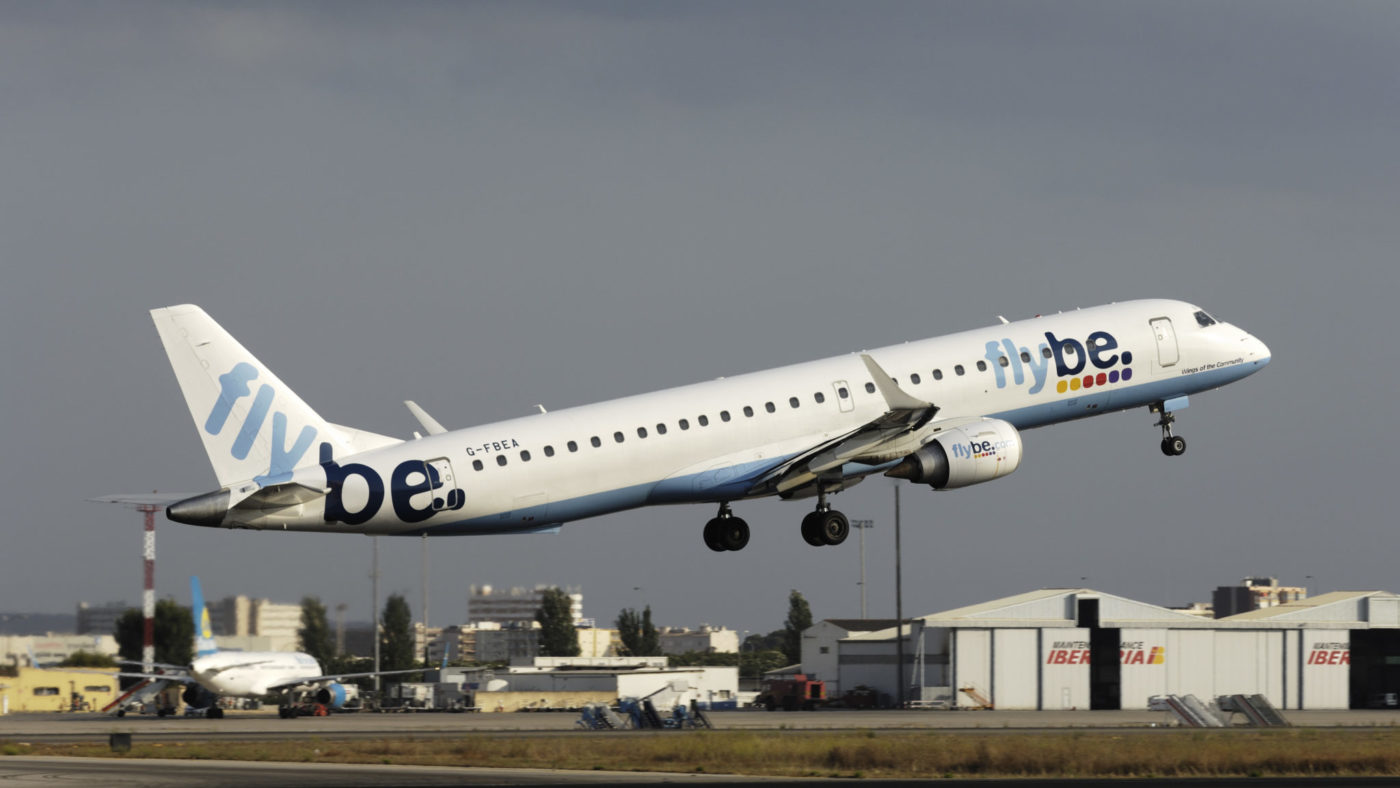On BBC Breakfast yesterday morning Boris Johnson declared that “it’s not for Government to step in and save companies that simply run into trouble.”
The Prime Minister was quite right, which makes the Government’s announcement that it will “review” domestic air passenger duty in response to struggling short haul carrier Flybe all the more confusing.
Reports have also emerged that the Treasury will be deferring Flybe’s £100m tax bill until 2023. Full details of the agreement with Flybe have not been released. As far as we know, no other airline will be getting this kind of sweetheart deal.
While some free marketers will instinctively welcome lower taxes, we should be hesitant about tax arrangements designed to help a particular business. If there is merit in cutting the Air Passenger Duty – currently a levy of £13 per short haul trip – that case should be made independently, not as part of a de facto bailout of a company.
It’s also worth noting that airlines are already in an advantageous taxation position. They pay no fuel duty and zero VAT on sales. The Government is yet to explain how further advantageous tax treatment for carbon intensive short haul travel can be squared with their stated goal of net zero emissions by 2050.
It is never good news when big business and big government get in a room to organise a secretive bailout for a mismanaged company. Taxpayers should not be paying for shareholder returns to businesses that cannot attract enough customers to pay for their service. It is also unfair to others. A struggling small business cannot easily march up to the Treasury to demand a special tax repayment plan and a review of its taxes.
As difficult as it may be for those directly affected, letting businesses go under is a key part of how a successful economy works. Every year thousands of businesses collapse and new ones are established: millions of workers lose their jobs, and millions find new ones.
The death of some businesses allows people, capital and resources to be reallocated to newer, innovative ventures. The 20th century economist Joseph Schumpeter called this ‘creative destruction’: the “process of industrial mutation… that incessantly revolutionises the economic structure from within, incessantly destroying the old one, incessantly creating a new one.” It’s an essential component of the innovation and entrepreneurship that has driven our growth in living standards over the last few hundred years.
In the case of Flybe — which will soon be known as Virgin Connect — the firm has been struggling for some time. A conglomeration of Virgin Atlantic, Stobart Group and Cyrus Capital bought Flybe in February 2019 for just £2.8 million. Now these multinational companies with big pockets are asking for favours from the taxpayer for something they always knew would be a struggle. There is no guarantee, now that the Government has shown their willingness, that they won’t reappear in the coming months or years demanding more support. The same can be said for other businesses who will now be emboldened to ask for a bit of corporate welfare.
Think about it another way: if you were to start up an airport in Cumbria tomorrow, and you couldn’t set up a flight to London that would meet the costs to make it profitable you wouldn’t get off the ground, and it’s likely the government would give you short shrift if you jumped up and down demanding tax breaks for your company specifically in order to do so.
Despite the failure of Thomas Cook and the ongoing struggle of Flybe, aviation is broadly a profitable and growing industry. Since 2013, passenger numbers have grown by almost one-third in the UK. If Flybe could be allowed to fail, other airlines would pick up the slack on profitable routes. Landing and takeoff slots could be used for higher demand routes, ideally reallocated using slot auctions. Flybe’s planes could be sold to other thriving airlines and ground and air crews could work for businesses where they are needed.
If we are going to prosper in the years ahead, we cannot simply bail out failing companies at every turn.
Click here to subscribe to our daily briefing – the best pieces from CapX and across the web.
CapX depends on the generosity of its readers. If you value what we do, please consider making a donation.


